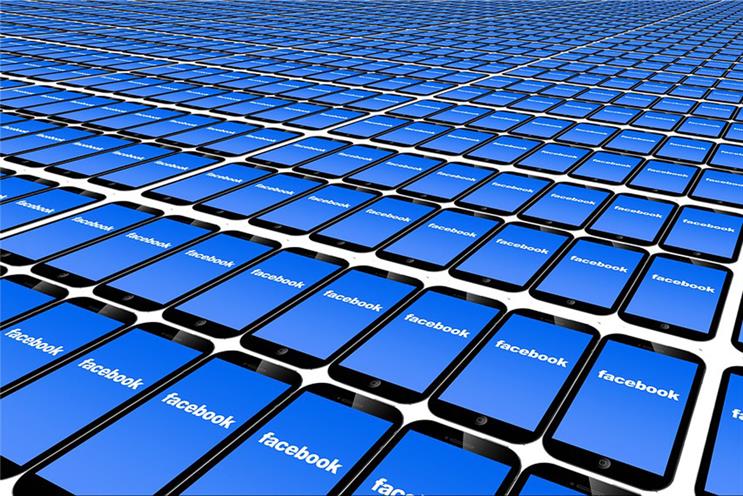"The people will not revolt. They will not look up from their screens long enough to notice what's happening."
A lovely quote packed with New Year cheer, from 1984’s stage adaptation, that.
You probably read that on your phone. On social media. We’re hooked up to these platforms and it seems that tech is using us rather than the other way around. Recently, insider research revealed that. And in a world of Fake News™, that’s confirmation of the fact: Facebook isn’t always your friend. Initially used to connect communities, it’s now geared to maximise revenue and shareholder value. Where once it was friends that dominated your in-app time, now it’s mainly retail, clickbait and bots. It’s ugly.
and justifiably so – the blue button is bigger than us all now. Designed to waste as much time as possible, it jacks you up with dopamine, keeps you shackled. Facebook’s ex-president Sean Parker , decrying its effects on children. We’re raising a generation with a lust for likes; the Children’s Commissioner recently spoke of the dangers posed to youngsters, warning that the quest for as they tumble through their formative years. The thing is, social media’s not really handing out much in return.
In the same way that brands have become more human and integrated purpose into their everyday goings-on rather than just organising a bake sale and calling it a day, social media needs to put us at the heart of the conversation again. This calls for a more sophisticated approach, more tact, more empathy. KPIs beyond time on app drowning in clickbait.
Because they are brands too, and should be held to the same standards as your ethical coffee sourcer or your climate-saving sparkling water heroes. Technology has affected the way we perceive our relationships with people and brands. If the ruling class of social want to move forward, they should add ‘properly understanding our users’ and human brand behaviours to their new year’s resolutions. As marketers and advertisers and creatives with an endless supply of thinking caps, we can help with that.
Circa 2018, Facebook’s still hijacking our brains, meddling with our emotions and keeping us plugged in at whatever cost. Like The Matrix, but with more kittens.
And people think they’re waking up. Privy to Facebook’s detrimental effects, users are often found migrating to dark social like Snapchat, free to broadcast to their friends and followers apparently unimpeded.
Nope.
Even here, the main goal is to cause addiction. To overload with branding and dependency. Loyalty to the platform with no real reason other than to do.
Snapstreaks being a terrifying example here. The reward? A measly fire emoji next to your name after three days – a fire emoji plus the number ten once you’ve dutifully kept up this rigmarole for ten days, dance monkey dance, clap, snap.
Even with this in place, youngsters try to revolt. They know the tricks and they’re standing up to the man, they’re unifying as a big middle finger and being so defiant, so gallant as to uninstall their apps.
And that’s not even hyperbole there – that’s genuinely commendable. These apps are designed to drain us, and they present themselves as the only solution. They think they have a captive audience, but it’s not really engaging – it’s engagement by dependence rather than genuine value exchange. It’s changing our behaviour, with over half of 16-24 year-olds.
We’re becoming a zombie nation.
I want to learn from social media, to gain a better worldview, to actively engage in activity that’s beneficial to me in a clear, meaningful manner.
Relying on our addiction to validation and connectivity doesn’t cut it anymore. It’s done. It’s over. Leave it in the festering bin of woe that was 2017, and throw that into a bigger bin with padlocks on it, just to be sure it’s gone.
We demand and deserve enriching interaction from these platforms.
At the moment, consumers are being abused rather than understood. While the idea of a passive audience munching up all the content and ads might sound good from a numbers perspective, it does us a disservice as human beings and it’s not going to last forever. Because it’s not in our best interests and we can change that.
Ensure you design creative for social in an empathetic fashion. Be human. Think about who’s on the other end and what they’ll feel, why they should not just click but continue to be betrothed to your brand.
Break the cycle. Just like Facebook did. If we start changing behaviour at our level, it spreads. It becomes the norm. It forces the big boys to put people in the spotlight again.
And it seems our voices are finally being heard. Facebook announced recently that , aiming to prioritise friends and family in our news feeds, with less time spent meandering through videos of people eating dishwasher tablets and half-hearted, overly pushy product placement. This is down to us. We want social media to be better and, at this juncture, Facebook seems to be listening.
Users can ask for more because they’re entitled to more.
Social media needs to be our big brother.
Not Big Brother.
Neil Davidson is managing director at HeyHuman


